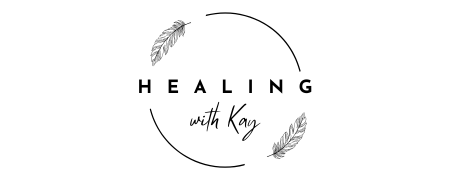4 Practical and Simple Ways to Be More in the Present Moment
Do you ever feel like you could be more in the present moment in a world full of distractions?
As Eckhart Tolle once said in The Power of Now, “Realize deeply that the present moment is all you have. Make the NOW the primary focus of your life.”
Pause and reflect on that for a moment—this very second will never happen again. For the longest time, I was so caught up in my thoughts that I forgot to cherish what was right in front of me. We often dwell on the past or stress about the future, but in reality, right now is all we have. And with practice and patience, being present can become a habit—a life-changing one.
Being fully aware of the present moment allows us to truly experience life. Whether it’s cherishing laughter with your children or appreciating the soothing warmth of a shower after a long day, these moments become richer when we are fully engaged.
What does it mean to be in the present moment?
Being present means immersing yourself in the here and now. It means quieting internal distractions and fully engaging with your surroundings. While it may seem challenging, with intentional practice, you can master this skill and experience the mental clarity and emotional balance it brings.
Simple ways to practise being in the present moment
1. Mindful Breathing
One of the easiest ways to anchor yourself in the present moment is by focusing on your breath. When your mind starts to wander, gently bring your attention back to each inhale and exhale. Your breath is constant—it’s always there to ground you.
A great technique for this is box breathing, which helps calm both the mind and body:
- Inhale for 4 seconds, visualising the first side of a square.
- Hold your breath for 4 seconds as you picture the next side forming.
- Exhale for 4 seconds, drawing the third side in your mind.
- Hold again for 4 seconds to complete the square.
Repeat this process until you feel re-centred.
2. Focus on your five senses
When overthinking takes over, grounding yourself through your senses can pull you back into the moment. Try this quick exercise:
- What can you see? Notice colours, shapes, or movement.
- What can you hear? Pay attention to background noises or distant sounds.
- What can you taste? A sip of coffee, a mint, or even the freshness of the air.
- What can you touch? The texture of the fabric of your clothes, the warmth of your hands.
- What can you smell? A candle, the scent of nature, or your surroundings.
During this exercise, your thoughts are no longer consumed by worry—you are fully present, experiencing life as it unfolds.
3. Practicing gratitude
Gratitude is a powerful tool for being more present. When you focus on what you’re grateful for, you naturally shift your awareness to the here and now. Try these daily gratitude practices:
- Morning gratitude: Write down three things you’re grateful for before starting your day.
- Mindful gratitude moments: Pause throughout the day to appreciate small joys—a friendly smile, a delicious meal, or a beautiful sunset.
- Gratitude journaling: Reflect on the best moment of your day before bed and note why it mattered.
By practising gratitude, you train your mind to find beauty in the present rather than longing for something else.
4. Single-tasking vs. multitasking
Multitasking may seem efficient, but it reduces focus and increases stress. Try focusing on one task at a time by:
- Time-blocking. Dedicate 25–45 minutes of deep focus on one task at a time.
- Eliminating distractions. Turn off notifications and put your phone away.
- Be intentional. Before starting, take a deep breath and commit to being fully engaged.
- Practice mindfulness in daily tasks. Whether eating, working, or conversing, focus on the task at hand.
The more you focus on what task at a time, the easier it becomes to be fully present.
Why being in the present moment matters
When you practise mindfulness and presence, you become more attuned to what is real rather than being lost in anxious thoughts. Research shows that being present can reduce stress and anxiety, enhance creativity, and boost overall happiness. You may find yourself laughing more, appreciating nature, and fully enjoying moments without the weight of internal monologues.
The next time you take a walk, notice the beauty around you. When spending time with loved ones, truly listen. Savour the warmth of your morning coffee or the softness of your bed at night. Life becomes richer when you are present for it.
If you take one thing from this, let it be this: when you catch yourself lost in thought, make a conscious effort to return to the present. It will transform your life for the better.
What’s one way you stay present in your daily life? Share in the comments below! 😊
Further reading
Love this kind of content? Get more mental health tips straight to your inbox! Sign up for my mailing list here.
